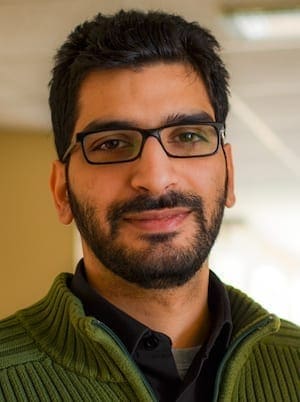In the spate of 12 days in October 2009, I read in the newspapers of the death – presumed suicide – of four migrant domestic workers. The workers were either Nepalese or Ethiopian.
Upon the fourth death, I went online and opened a blog that I depressingly (and without much thinking) titled Ethiopian Suicides. I wanted it to sound like a necrology with the purpose of highlighting the intolerable situation that many migrant domestic workers face.
With time, my posts moved beyond reporting cases of deaths and attempted or presumed suicides that I read in media.
I relayed articles and news on the racism and slavery-like practices of which migrant domestic workers suffered, and on the work and role of various governmental bodies and nongovernmental organizations (NGOs).
My blog equally relayed news of activism and advocacy for the rights of migrant domestic workers and sought to reflect as much as possible the social life of migrant communities in Lebanon.
There are an estimated 200,000 migrant domestic workers in Lebanon.
The sponsorship system controls their entry and residency, and legally ties each of them to their employer. This system was enacted by decision of the Lebanese General Security Office and not by legislation in parliament.
It is prone to abuse, gives too much power to the employer and to employment agencies, and is cited as a primary cause for human rights violations of migrant domestic workers.
In the past three years, my blogging has mainly addressed the work of human rights and grassroots activist organizations, including my own activism.
During this period, I grew to understand the important role of the church in supporting migrant workers in Lebanon.
Every Sunday, domestic workers from many nationalities are spotted on the streets and in taxis going to church in small groups, some covered in a white cloth. The churches are evangelical, Catholic or Orthodox, and are usually exclusive to their respective nationalities.
Recently, my church shared the bread and wine in communion together with a group of Sri Lankan workers. But we only convened for communion at the end of each of our respective services.
In the summer of 2012, both Lebanese and Sri Lankans were baptized together. Aimée, the Malagasy actor in a short YouTube advocacy film I made in 2010, was studying theology in Beirut and leading church services for Malagasy domestic workers at the time.
In my years of activism, I grew to see the church as the only space where Lebanese and migrant workers are truly reconciled, where Lebanese demonstrate the brotherly love that is in Christ.
No matter how many citizen organizations attempt to put an end to Lebanese racism, the Bible stands out with a towering message: “You must love your neighbor as yourself” (Matthew 22:39).
On a practical level, churches present a sustainable institution for supporting the migrant worker community.
In fact, an NGO collective operating a migrant community center in one of the poorer Beirut suburbs is considering handing the center over to a church after the funding runs out as a means to ensure sustainability.
In the aftermath of the crash of an Ethiopian Airlines plane in January 2010, the mass attended by hundreds of Ethiopian women in the Catholic Church in Badaro (Beirut) was a moment of recollection and an opportunity for the Ethiopian consul to address his citizens.
Furthermore, Caritas, the Catholic relief and development organization, has a big migrant assistance program and runs safe houses in coordination with the Lebanese General Security Office.
This said, I would say that the picture is not at all perfect. Brotherly love needs additional effort that not all Christians are making or are even aware that they should be making.
Strong cultural and social-behavioral differences between Lebanese and the domestic worker, especially those from African countries, often lead to conflict in households hosting domestic workers.
One illustration is the difference in interpersonal communication between Lebanese and African, namely Ethiopian.
When I met with the Ethiopian consul in Beirut several years ago, he said that in his briefing to new Ethiopian domestic workers, he explains that that Lebanese are vocal and their high voices should not be interpreted as a sign of aggressiveness, as in Ethiopian culture.
But the fact that Ethiopians and other African nationalities would interpret common Lebanese communication (gestures, facial expressions, tone and pitch of voice) as hostile and aggressive is not common knowledge among Lebanese.
In June 2013, the Institute of Middle East Studies will hold its 10th annual conference titled “Your Rights and My Responsibilities: Biblical and Islamic Perspectives on Human Rights.”
The conference will include panels on human trafficking and on the situation facing domestic workers in Lebanon and the Middle East.
I look forward to the debates during this conference and to answering the following questions:
â— What behavioral obligations do Islam and Christianity impose on families hosting domestic workers?
â— And consequently, how should the sponsorship system be reformed – that is, how do we turn values and faith obligations into government policies?
â— Beyond brotherly love, would biblical and Islamic values be able to draw common policies respectful of human rights for migrant workers?
â— Would biblical and Islamic values be able to find common ground to address freedom of movement, freedom to quit work, working hours, monthly pay and working conditions of migrant domestic workers?
Wissam al-Saliby is the development and partner relations manager at Arab Baptist Theological Seminary. He holds a master of arts in international law and blogs at Ethiopian Suicides and Lebanonesia. A version of this column first appeared on the IMES blog and is used with permission.
Visit Arab Baptist Theological Seminary on Facebook, and click here to learn more about the upcoming Middle Eastern Conference in Beirut.
Wissam al-Saliby is a UN Geneva Advocacy Officer with the World Evangelical Alliance.

